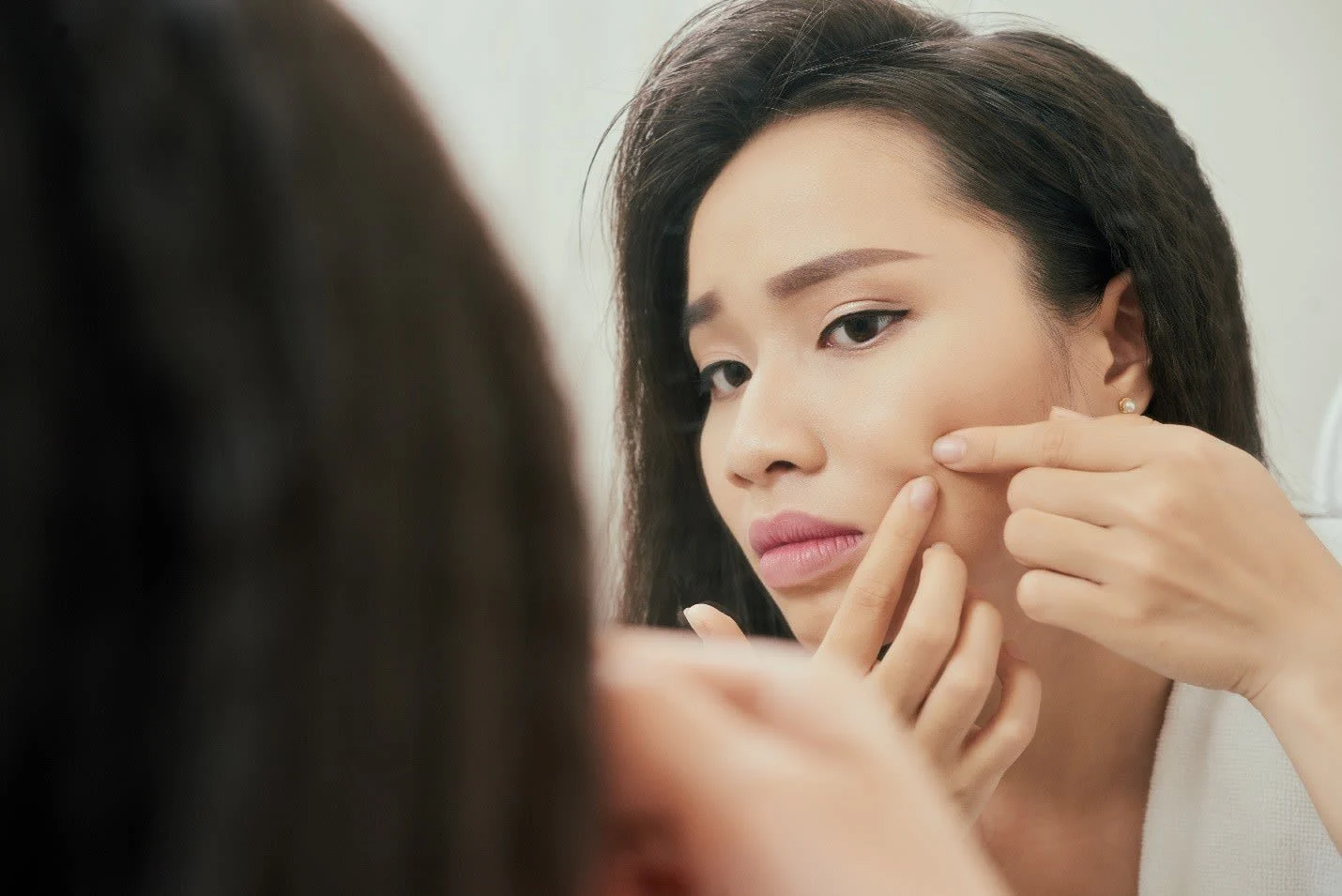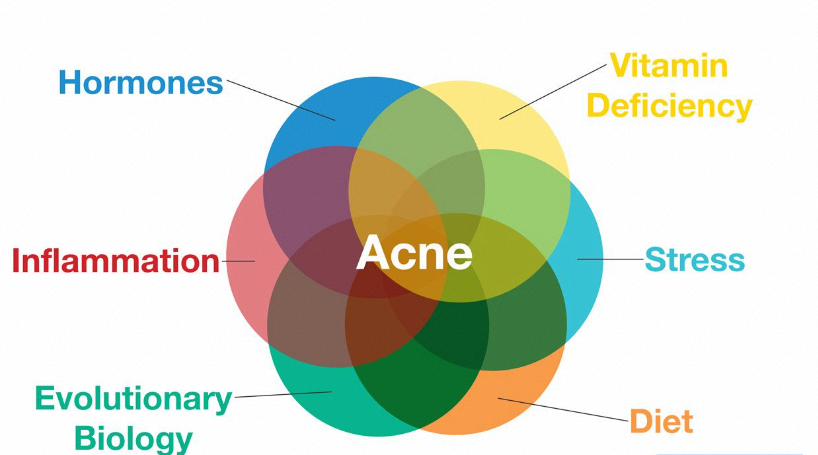Taming the Breakout: Effective Strategies for Dealing with Acne
Acne is a common skin condition that affects millions of people worldwide. It can manifest in various forms, from mild whiteheads and blackheads to painful cysts and nodules. While dealing with acne is not life-threatening, it can significantly impact self-esteem and confidence. This article explores effective strategies for dealing with acne, empowering you to take control of your skin.
Understanding Acne: Causes and Types
Acne occurs when pores become clogged with oil (sebum) and dead skin cells. Bacteria can then thrive in these clogged pores, leading to inflammation and the development of pimples. Several factors can dealing with acne:
- Hormonal fluctuations: Changes in hormone levels, especially during puberty, pregnancy, and menstruation, can trigger acne breakouts.
- Genetics: A family history of acne increases your risk of developing the condition.
- Diet: While research is ongoing, some studies suggest a link between a diet high in processed foods and sugar and acne breakouts.
- Stress: Stress can worsen acne symptoms.
- Certain medications: Some medications can contribute to acne breakouts.
There are several types of acne, each with its own characteristics:
- Whiteheads: Closed pores filled with sebum appear as white bumps on the skin.
- Blackheads: Open pores filled with sebum appear as black bumps on the skin.
- Papules: Small, red, inflamed bumps that rise above the skin’s surface.
- Pustules: Small, red bumps with white pus at the center.
- Nodules: Large, solid, painful bumps that lie deep within the skin.
- Cysts: Large, pus-filled bumps that are the most severe form of acne.
Understanding the type of acne you have is crucial for determining the most effective treatment approach.
Dealing With Acne: Treatment Options
There are various treatment options available for acne, depending on its severity and type. Here’s an overview of some common approaches:
1. Over-the-Counter (OTC) Medications:
- Salicylic Acid: This readily available ingredient helps exfoliate dead skin cells and unclog pores. It comes in various forms, including cleansers, gels, and creams. While generally well-tolerated, salicylic acid can cause dryness and irritation, especially for those with sensitive skin.
- Benzoyl Peroxide: This topical medication kills bacteria on the skin’s surface and helps reduce inflammation. It is effective against mild to moderate acne but can cause dryness, redness, and peeling, especially when used at higher concentrations.
- Combination Products: Many OTC products combine salicylic acid and benzoyl peroxide or other ingredients like sulfur or alpha hydroxy acids to offer a multi-pronged approach to tackling acne.
It’s important to remember that OTC medications may take several weeks to show noticeable improvement. Consistency is crucial, and if you experience any severe side effects, discontinue use and consult a healthcare professional.
2. Prescription Medications:
For moderate to severe acne, a dermatologist might prescribe stronger medications. Here are some common options:
- Topical Retinoids: These medications come in cream, gel, or lotion form and work by promoting skin cell turnover and unclogging pores. They are highly effective but can cause dryness, irritation, and sun sensitivity.
- Antibiotics: Oral antibiotics are typically used alongside other treatments to target acne-causing bacteria. However, prolonged use can lead to antibiotic resistance, and these medications don’t address the underlying cause of acne.
- Hormonal Treatments: For women with hormonal acne, birth control pills or other hormonal medications can be helpful. These medications regulate hormone levels and can significantly improve acne in some cases.
It’s crucial to note that prescription medications require a doctor’s supervision. They can have various side effects, and it’s essential to discuss these thoroughly with your dermatologist before starting any treatment.
3. Acne Surgery:
In some cases, a dermatologist might recommend specific procedures to address specific types of acne:
- Extraction: This involves using sterilized tools to remove blackheads, whiteheads, and pustules. While effective for individual blemishes, it’s not suitable for widespread acne and should only be performed by a qualified professional.
- Intralesional injections: For inflamed papules, pustules, and nodules, injecting cortisone can reduce inflammation and pain. However, repeated injections can cause scarring.
Acne surgery should be considered a last resort and only performed by a dermatologist to minimize the risk of complications and scarring.
4. Light and Laser Therapy:
These advanced treatments target acne-causing bacteria and reduce inflammation:
- Blue light therapy: This painless treatment uses blue wavelengths of light to kill bacteria within the pores. While effective for mild to moderate acne, multiple sessions are often needed, and long-term results may vary.
- Red light therapy: This therapy uses red light wavelengths to reduce inflammation and promote healing. It may be beneficial for inflammatory acne but is often used in combination with other treatments.
- Laser therapy: Certain lasers target specific blood vessels supplying oxygen and nutrients to acne lesions, shrinking them and reducing inflammation. This treatment is typically reserved for severe nodulocystic acne and requires consultation with a dermatologist experienced in laser therapy.
Light and laser therapies can be expensive and may require multiple sessions. Consulting a dermatologist experienced in these treatments is crucial to determine their suitability and potential risks and benefits for your specific case.
Beyond Products: Lifestyle Changes for Clearer Skin
While topical treatments and medications play a significant role in managing acne, adopting healthy lifestyle habits can also significantly impact your skin’s health:
- Maintain a clean skincare routine: Wash your face twice daily with a gentle cleanser and lukewarm water. Avoid harsh scrubs or excessive washing, which can irritate the skin.
- Moisturize regularly: Even oily skin needs moisture. Choose a non-comedogenic moisturizer that won’t clog pores.
- Avoid touching your face: Your hands harbor bacteria that can worsen acne.
- Manage stress: While stress doesn’t directly cause acne, it can exacerbate breakouts. Practice stress management techniques like yoga or meditation.
- Dietary considerations: While research is ongoing, limiting processed foods, sugary drinks, and dairy might be beneficial for some people with acne.
- Get enough sleep: Aim for 7-8 hours of sleep each night. Sleep deprivation can contribute to hormonal imbalances that may worsen acne.
Remember, consistency is key! Sticking to a regular skincare routine and healthy lifestyle habits can significantly improve your skin’s clarity and overall health.
Breaking the Myth: Debunking Common Acne Misconceptions
There are many myths and misconceptions surrounding acne. Here are some common ones to debunk:
- Myth: Acne is caused by poor hygiene.
- Fact: While proper hygiene is essential, acne is primarily caused by hormonal fluctuations and clogged pores.
- Myth: Squeezing pimples will clear them up faster.
- Fact: Squeezing pimples can actually worsen inflammation and lead to scarring.
- Myth: Sun exposure is good for acne.
- Fact: While some people experience temporary improvement with sun exposure, UV rays can damage the skin and worsen acne in the long run.
Leave a Reply